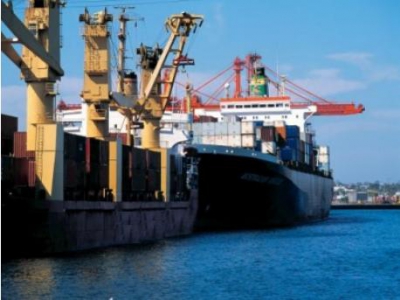The new regulation will enter into force on 1 January 2014
The Republic of the Marshall Islands has issued Marine Safety Advsory No.73 to provide an update on the prohibition of blending MARPOL cargoes on board during sea voyage.
The Maritime Safety Committee hasfinally adopted, during its 90thsession, resolution MSC.325(90) by which a new SOLASregulation prohibits the blending of bulk liquid cargoes and production processes during seavoyages. The new regulation will enter into force on 1 January 2014 and adds the following textafter the existing regulation 5-1 of SOLAS Chapter VI:
|
Regulation 5-2 – Prohibition of the blending of bulk liquid cargoes and production processesduring sea voyages 1 The physical blending of bulk liquid cargoes during sea voyages is prohibited. Physicalblending refers to the process whereby the ship’s cargo pumps and pipelines are used tointernally circulate two or more different cargoes with the intent to achieve a cargo with a newproduct designation. This prohibition does not preclude the master from undertaking cargotransfers for the safety of the ship or protection of the marine environment. 2 The prohibition in paragraph 1 does not apply to the blending of products for use in the searchand exploitation of seabed mineral resources on board ships used to facilitate such operations. 3 Any production process on board a ship during sea voyages is prohibited. Productionprocesses refer to any deliberate operation whereby a chemical reaction between a ship’s cargoand any other substance or cargo takes place. 4 The prohibition in paragraph 3 does not apply to the production processes of cargoes for usein the search and exploitation of seabed mineral resources on board ships used to facilitate suchoperations.* *Refer to the Guidelines for the transport and handling of limited amounts of hazardous and noxious liquidsubstances in bulk in offshore support vessels (resolution A.673(16), as amended). |
The Maritime Safety Committee has further agreed that prohibition of the blending of cargoesdoes not apply where cargo is recirculated within its cargo tank or through an external heatexchanger during the voyage for the purpose of maintaining cargo homogeneity or temperaturecontrol, including when two (2) or more different products have previously been loaded into thesame cargo tank within port limits.
Furthermore blending operations would be permitted onboard when conducted in port or whilemoored, for example, where it is presupposed that safer conditions would exist and additionalspill response equipment would be readily available.
Therefore shipowners/operators shouldconsult with relevant local authorities (load port, discharge port, etc.) prior to commencing anyonboard blending operations to ensure that compliance expectations are understood by all parties.
Finally the 2011 Guidelines for the carriage of blends of petroleum oil and biofuels which theMarine Environment Protection Committee has initially developed at its 62ndsession, have beenfurther amended and promulgated through MEPC.1/Circ.761/Rev.1
Source: RMI






























































